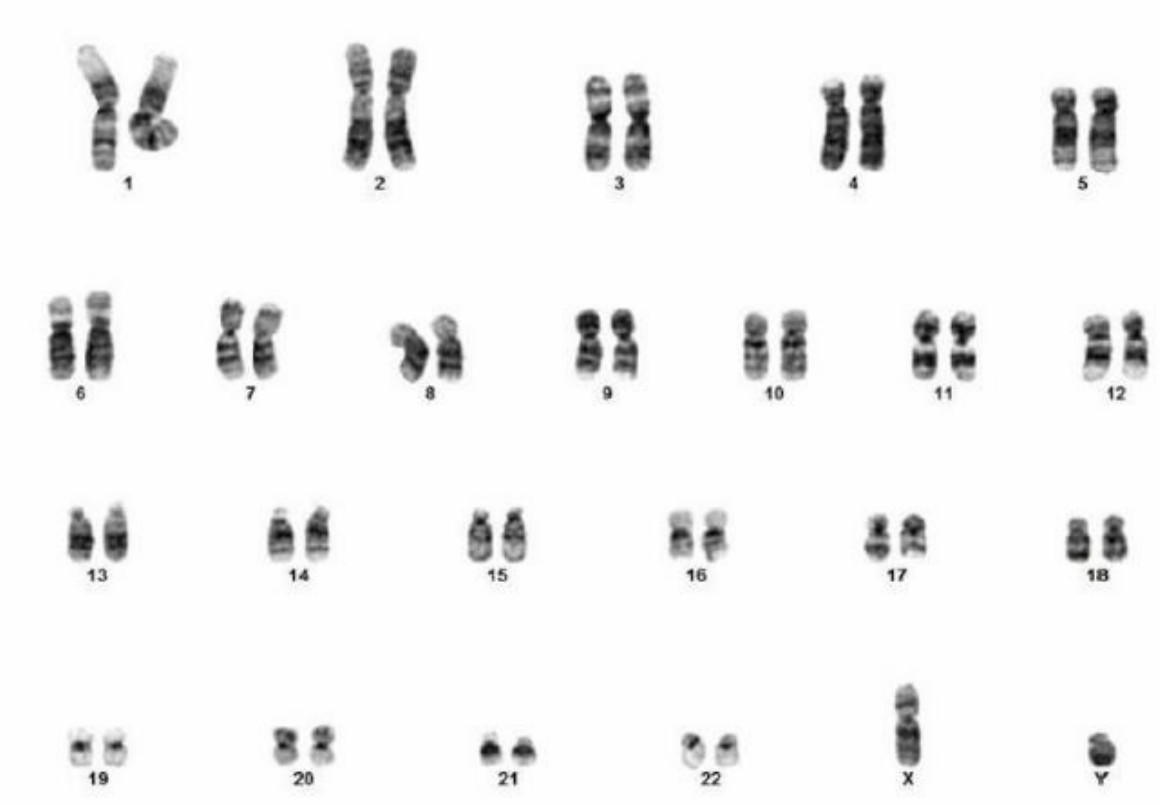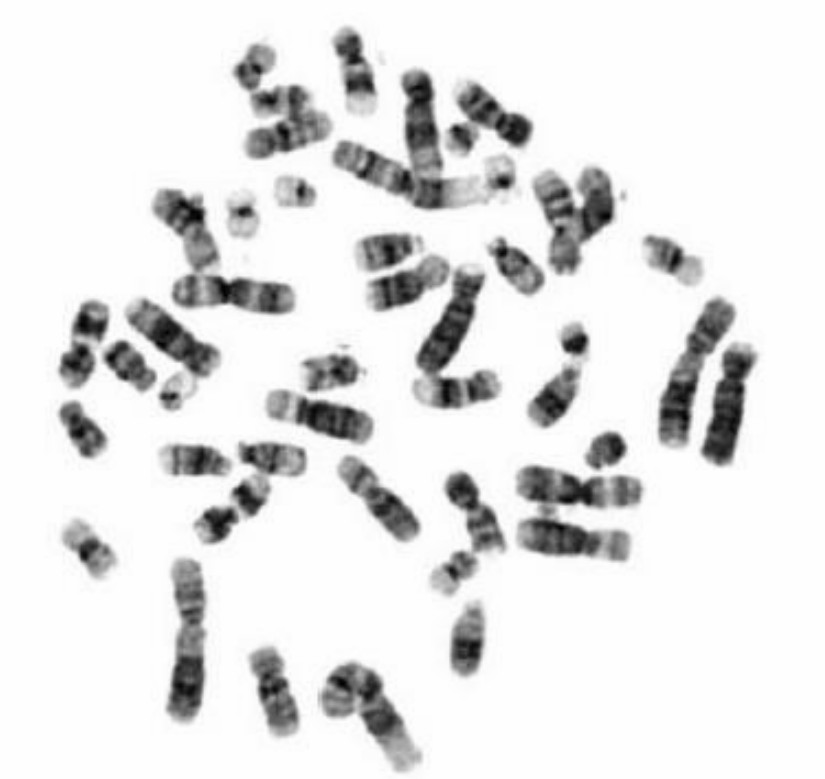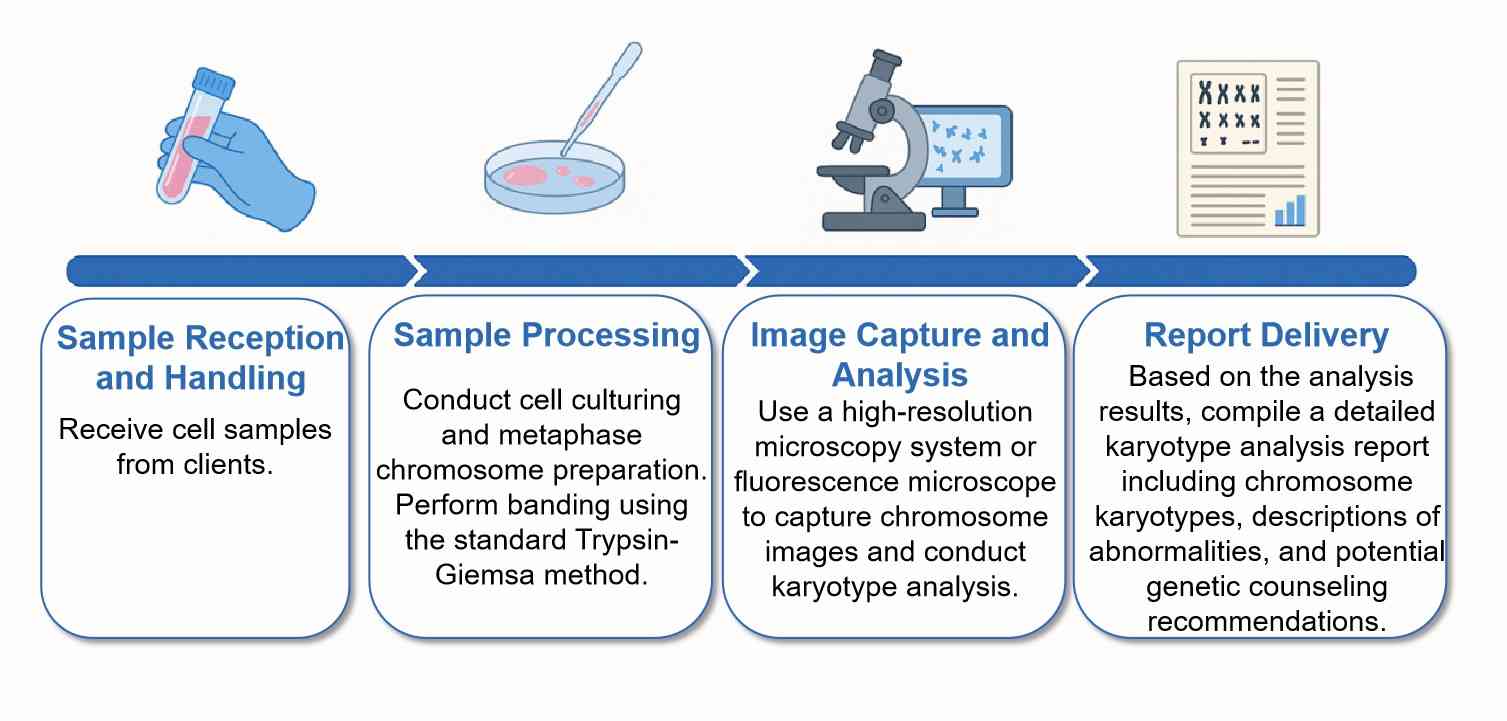Karyotyping (G-Banded) Service
- Service Details
- Features
- Application
- FAQ
- Explore Other Options
Karyotyping plays a fundamental role in genetics and cell biology because it supports research in genetics and biodiversity. It is essential for understanding genetic structures and variations, as well as studying species diversity and evolution.
Creative Bioarray offers advanced G-Banded karyotyping analysis focused on chromosome number and structural analysis. We provide cytogenetic analyses for multiple species such as humans, mice, and rats through standard and specially designed services. Creative Bioarray's karyotyping services deliver precise and accurate results, supporting your scientific research needs and helping achieve your research goals.


Fig. 1. The metaphase chromosome spread (right) and corresponding karyotype (left) of a normal human male.
Use karyotype (G-Banded) analysis to detect:
Microscopic genomic abnormalities> 5Mb
- Aneuploidy
- Inversions
- Duplications/deletions
- Translocations
>10% Mosaicism
Our Karyotyping (G-Banded) Service
Workflow
 Fig. 1. The metaphase chromosome spread (right) and corresponding karyotype (left) of a normal human male.
Fig. 1. The metaphase chromosome spread (right) and corresponding karyotype (left) of a normal human male.
Service
Species-Specific Karyotyping
- Human Karyotyping Service
- Mouse Karyotyping Service
- Rat Karyotyping Service
- Rare Species Karyotyping Service (e.g., Sheep, Cow, Pig, Dog, Hamster, Fish)
Cancer Cells Karyotyping
- Complex analysis for cancer cell lines and cases with unstable karyotypes
Cell Line Karyotyping
- Assessment of genomic stability and chromosomal changes
- Detection of inversions, translocations, and aneuploidy
- Culture development is available for NK Cells, iPSCs, T-Cells, and whole blood
Delivery:
- Counting: 30-40 cells, and microscope analysis of 20 metaphase spreads
- We provide high cell count G-banding from 20-100+ cells
- Our karyotyping report includes a summary and 2 representative karyotype images.
Why Choose Our Karyotyping (G-Banded) Service?

Diverse Species Expertise
We analyze multiple species, customizing methods for varied biological needs.

Advanced Techniques
High-detail G-banding and multicolor FISH probes set industry standards.

Comprehensive Reporting
Clear and detailed reports provide full understanding of karyotyping results.

Tailored Service
Personalized solutions with continuous support to meet specific needs.
What can you do with our Karyotyping (G-Banded) Service?
- Genetic Research: Used to study the structure, number, and morphological characteristics of chromosomes to help identify and understand genetic variation and evolutionary processes.
- Species Classification and Evolution: Scientists analyze chromosomal features to map out evolutionary connections between species.
- Cell Biology Research: This approach enables scientists to monitor chromosomal activity during the cell cycle and study the emergence of chromosomal damage and aberrations.
- Crop and Animal Breeding: Chromosome analysis plays a crucial role in breeding research by helping identify the best plant and animal varieties which leads to advancements in agriculture。 horticulture and animal husbandry.
FAQ
1. How long does the karyotyping process take?
The entire process, from sample receipt to report delivery, usually takes7-10 Business Days, depending on the sample type and complexity of the analysis.
2. What samples can be used for Karyotyping (G-Banded) testing?
We accept peripheral blood, amniotic fluid, chorionic villus tissue, bone marrow, and other tissue samples. The specific choice depends on the testing purpose and client requirements.
3. What are the sample requirements?
Generally, 2-3 milliliters of peripheral blood are needed (collected in heparin anticoagulant tubes), more than 15 milliliters of amniotic fluid (in a sterile container), and more than 20 milligrams of chorionic villus tissue (preserved in transport medium). For other tissue samples, please consult professionals. Live cell samples should be submitted for testing as soon as possible with cold transport, while fixed cell samples should be handled according to laboratory guidelines.
4. What does the report include?
The report includes a chromosome karyotype image, detailed descriptions of chromosomal abnormalities, karyotype formula, and genetic diagnostic opinions. Additionally, raw microscope image files are provided for client reference.
Explore Other Options